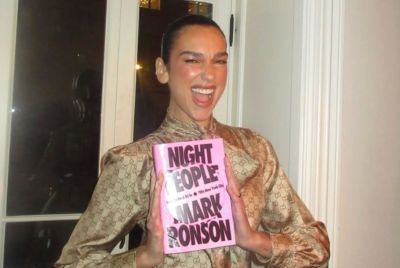The Brynner Encounter: Eddie Murphy Claims Actor Wanted A Threesome At 21

Eddie Murphy has stunned fans with an extraordinary story from his early rise to fame, revealing in his new Netflix documentary Being Eddie that Hollywood legend Yul Brynner once invited him to what he now suspects was a threesome.
Murphy recalls the moment as both surreal and comical, describing how the encounter took place on his 21st birthday at the notorious Studio 54.
While the anecdote has become one of the documentary's most replayed moments, Murphy uses the episode to explore a deeper theme: how ego, discipline, and grounding instincts protected him during the most turbulent chapter of his early career.
The Shocking Studio 54 Offer
Murphy claims that the odd encounter happened at a star-studded party at the storied Studio 54 on the evening of his 21st birthday. Brynner, who was at the party with his wife, was among the Hollywood A-listers who saw Murphy, who had already started making the move from Long Island comedy venues to national prominence on Saturday Night Live.
Murphy claims that Brynner boldly asked him, 'How would you like to come back to my flat... and party?' Murphy remembers laughing off the offer and graciously turning it down, telling the older star that he was 'cool' and that he preferred to hang out at the club with his friends.
But now, decades later, he acknowledges that he has repeatedly reenacted that scene and thinks Brynner might have had something far more risqué in mind than a straightforward after-party. In the documentary, he jokes that he 'didn't realise until much later' what was probably being given. He chuckles, 'Now I wish I would have gone. There would have been a better conclusion to the story.'
Viewers are shocked that Murphy, who was barely out of his teens at the time, turned down such a blatant offer from one of Hollywood's most well-known stars, and the sequence has rapidly become the most talked-about part of the documentary.
Ego as a Form of Protection
Murphy believes that the Brynner incident is just one part of the greater narrative about how he survived Hollywood's most risky period, even though it offers shock value that makes headlines. He reveals in Being Eddie that his enormous ego, which was frequently mocked during his early popularity, was also an essential defence mechanism.
He claims, 'I had this enormous ego, this self-love. And it saved me.' According to Murphy, an unwavering sense of self-worth prevented him from engaging in risky behaviours and helped him maintain perspective when opportunity, wealth, and fame came in overwhelming waves.
He remarked that, when utilised appropriately, ego provided a buffer between him and the chaotic temptations that ruined numerous celebrities around him. 'I thought too highly of myself to mess up,' he declares. 'I wasn't going to waste my life like that.'
Murphy reflects on the terrible decline of countless industry stars, ranging from music luminaries to actors whose careers were destroyed by substance abuse, and says he realised early on that he needed to make different decisions.
Avoiding Fame's Dark Tunnel
Murphy claims he avoided every trap during a time when Hollywood nightlife was associated with potent drugs, easy cash, and constant scandal. He claims that he never used drugs, never descended into self-destruction, and never let achievement impair his judgement.
Rather than pursuing opportunities that prioritise fame over quality, he focused on his skills and chose challenging jobs. He claims that the discipline paid off, enabling him to preserve a degree of personal stability despite becoming a blockbuster star in 48 Hours, Trading Places, and Beverly Hills Cop.
He underlines that avoiding chaos was the outcome of deliberate choices rather than chance. He states, 'I wanted to have a long career. And if you're out there destroying yourself, you can't have that.'
Upbringing as His Anchor
Murphy attributes a large portion of his fortitude to the grounding influence of Vernon Lynch, his stepfather, who reared him following the death of his biological father. He claims that Lynch imparted values that accompanied him onto the international scene, such as discipline, perspective, and a strong sense of identity.
Murphy says, 'He made sure I knew who I was. He made sure I didn't get lost.' As his fame grew in his twenties, he relied heavily on the internal compass the lessons had given him.
@todayshow Eddie Murphy says he always knew he was going to be famous, and shares how he formed his comedy chops as a kid. He also shares what he hopes his professional legacy is. #TODAYShow
♬ original sound - TODAY Show - TODAY Show
A Career Defined by Control and One Missed Opportunity
Looking back on his past, Murphy claims that discipline, ego, and upbringing helped him succeed in a field that has consumed many young talents. However, his account of the Brynner incident demonstrates that he still has a sense of humour about the mayhem he barely escaped and the ridiculous circumstances he found himself in.
'It was wild,' he says in conclusion. 'I was twenty-one. Yul Brynner also wanted to party with his wife and me. I didn't go. And in looking back, maybe I should have.
© Copyright IBTimes 2025. All rights reserved.



















